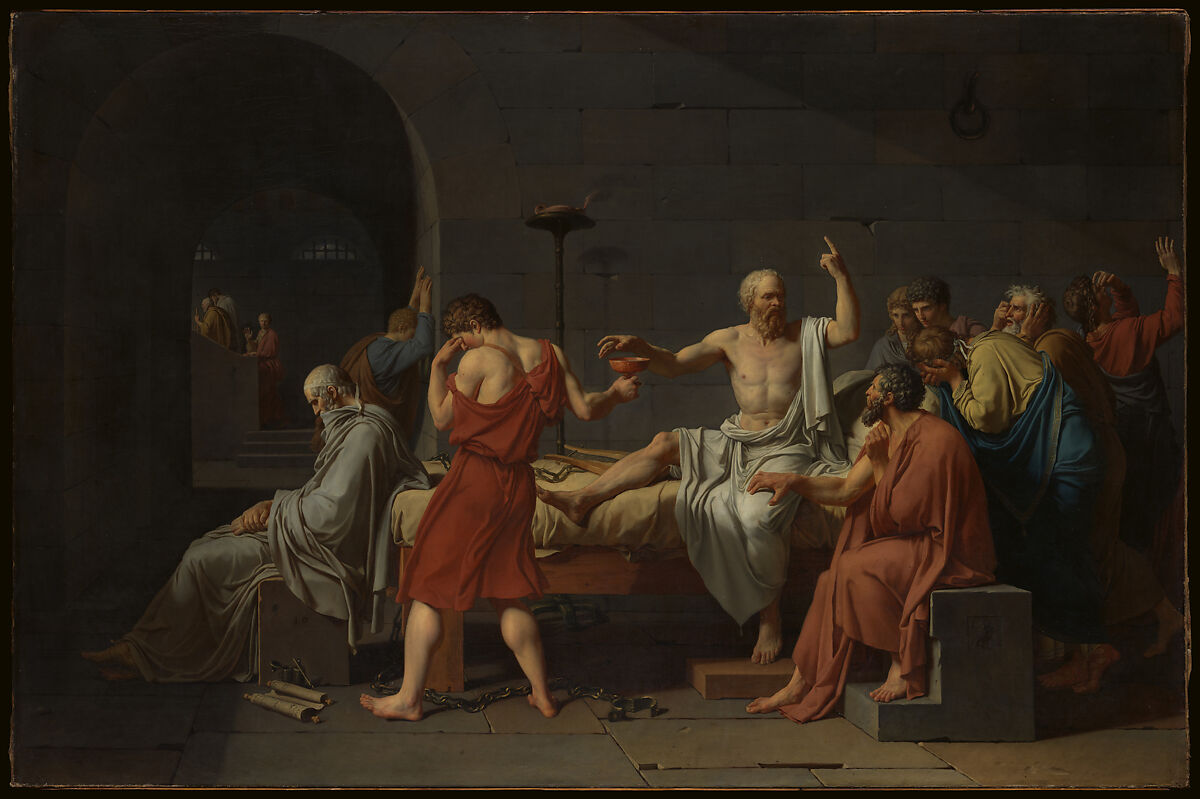Does God exist? You can reasonably argue it both ways. The same goes for such other ‘big questions’ as whether there is personal survival of bodily death. Now on many other issues where the arguments and evidential considerations pro et contra are equally good and cancel out, it is reasonable to suspend judgment and unreasonable not to. But not with respect to the big or ultimate questions. Or so I shall argue. But first some terminological regimentation.
There are four different types of attitude one can take with respect to a proposition: Accept, Reject, Suspend, Bracket.
To accept a proposition is to affirm it. To reject a proposition is to deny it. One cannot on pain of embracing a contradiction accept and reject one and the same proposition. LNC rules the discursive plane.
To suspend a proposition is to take no stance with respect to its truth or falsity, its ‘truth-value’ as the philosophers say. It is neither to affirm it nor to deny it. One suspends judgment as to its truth-value. There is no doxastic commitment either by way of belief or disbelief.
What I am calling ‘bracketing’ is something different still. Consider the Trinitarian dogma, “There is one God in three divine persons.” Some will affirm, some deny, others suspend the proposition they take it to express; there is, however, a fourth possibility.
Here is a little speech someone might give.
“The Trinitarian sentence you uttered makes no sense; it is unintelligible, if not in itself then at least for me. It strikes me as self-contradictory and thus expresses no definite thought or proposition. I cannot accept or reject since I do not know what I would be accepting or rejecting. For the same reason I cannot suspend: with respect to what proposition would I be suspending judgment?”
The fourth stance, bracketing, is a sort of suspension, but not with respect to truth-value but with respect to propositional sense. The sense of a declarative sentence (a sentence in the indicative mood) is the proposition it is used to express. And so the bracketing stance or attitude amounts to a suspension of commitment to there being a proposition the sentence expresses.
“I cannot evaluate a thought unless there is a thought to evaluate, and the Trinitarian sentence does not seem to me to express a thought. The sentence, being self-contradictory, lacks a determinate propositional sense and therefore is unintelligible to me.”
That is surely a stance one can, and some do, take. Note that I mentioned the Trinity doctrine only as an example in order to explain bracketing. The topic is not the Trinity. So please no comments on the coherence or incoherence of that doctrine.
With the above as background, I advance to my thesis.
THESIS: With respect to many propositions, both the theoretically rational and the practically rational course is to suspend judgment; with respect to some propositions, however, it would be practically irrational to suspend judgment. It would be imprudent or pragmatically ill-advised. Among the latter: there is a God; the soul is immortal; we will be judged, rewarded and punished in the hereafter for some of what we have done and left undone here below. (I am presupposing a distinction between theoretical and practical (pragmatic, prudential) rationality.)
My point is that for beings of our constitution it would be practically irrational and highly imprudent to suspend judgment on the questions of God and personal immortality. For if one did so one would not be likely to live here and now in such a way as to assure a positive post-mortem outcome. After all, we do not know that the soul is immortal nor do we know that it is not. The questions are theoretically undecidable.
But man does not live by theory alone. We are not mere transcendental spectators but interested free agents, interested in the sense of embedded in real being. (inter esse) We have interests in this life and beyond it: we are concerned with our ultimate felicity, well-being, and continuance in being.
If we had no interests beyond this life, if we were pure spectators, we should suspend judgment on the ultimate questions and go back to the everyday and its proximate concerns. That would be the reasonable thing to do — if we were pure spectators and the big questions were of merely theoretical interest. Whether God and the soul are real or unreal would then be on a par with whether the number of electrons in the universe is odd or even. Since the latter question is theoretically undecidable, it would be practically irrational to waste any time on it.
This is essentially the attitude of the worldling when it comes to God and soul and the like. “Who knows?” “People say different things.” “The supposedly wisest among us have contradicted one another since time immemorial.” “Why waste time on this philosophy nonsense when you could be living to human scale by pursuing a profession useful to others, making money, buying a house, founding a family?” Remain true to the earth; make friends with the finite; don’t hanker after a hinter world; this world is all there is.
My thesis, however, is that while is is both theoretically and practically rational to suspend judgment on many questions, this does not hold for those questions pertaining to our ultimate felicity and well-being. My thesis presupposes the real possibility of ultimate felicity and well-being. And so, to appreciate my thesis you cannot have the mentality of a worldling. You have to have had the experience of the ultimate nullity of the proximate concerns I mentioned. You must have the sense that this world and this life are ‘vanishing quantities.’ You have to have been struck and troubled by the transience of life and the impermanence of things. You have to take that troubling impermanence as an indicator of the relative (not absolute) unreality of this life. You have to possess the Platonic sensibility.
Now I can’t argue you into that sensibility any more than you can argue me out of it. Argument comes too late. Or rather it comes too soon. What I mean is that argument and counter-argument disport upon the discursive plane which is foreground to the ultimate background, the Unseen Order. What breaks the standoff for some of us is a glimpse into the Transdiscursive, a peek behind the veil. But only some have had the Glimpse. It is a divine gift, a gratuitous granting ab extra. Others will say that the Glimpse experience has zero noetic quality; it is something on the order of a Spinozistic experientia vaga, or a random neuronal swerve, a ‘brain fart.’ There is no resolution to this dispute over noetic quality on the plane of theoretical reason. You will have to decide what you will believe and how you will live.
In sum:
You are violating no canon of theoretical or practical rationality if you decide to live as if God and the soul are real. And since the questions are theoretically undecidable, you will decide either by an explicit act of will or willy-nilly (nolens volens) how you will live. The will comes into it. Why do I say you will decide? Because if you don’t decide, that non-decision amounts practically to a decision for the other side of the question.
The atheist and the mortalist who abstain from taking a stand cannot help but take a stand, practically, though not theoretically, for atheism and mortalism.


 Some of you will be at table with relatives today. Experientia docet: Occasions of putative conviviality can easily degenerate into nastiness. A prophylactic to consider is the avoidance of all talk of politics and religion. But to paraphrase G. K. Chesterton, What else is there to talk about? An exaggeration, no doubt, but God and Man in relation to the State does cover a lot of ground.
Some of you will be at table with relatives today. Experientia docet: Occasions of putative conviviality can easily degenerate into nastiness. A prophylactic to consider is the avoidance of all talk of politics and religion. But to paraphrase G. K. Chesterton, What else is there to talk about? An exaggeration, no doubt, but God and Man in relation to the State does cover a lot of ground.